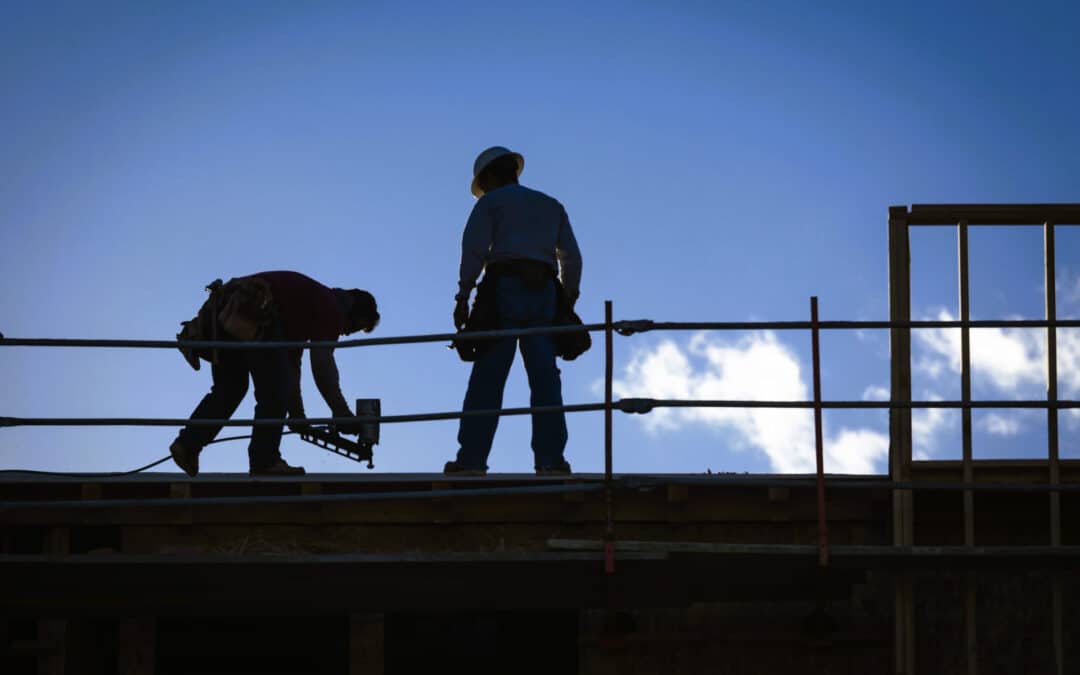Considering the integrity and longevity of your roof, the qualifications of your chosen professional roofers cannot be overstressed. The importance of hiring well-qualified roofing professionals is paramount, whether for routine inspections, emergency repairs, or major installations. This article will explore the crucial qualifications that reputable professional local roofers should possess to provide the best service.
Professional Certifications for Roofers
Professional certifications serve as a benchmark for the expertise and credibility of roofers. Holding industry-recognized certifications means that a roofer has met certain standards of knowledge and skill, which are crucial for delivering high-quality roofing services. For instance, certifications from bodies like the National Roofing Contractors Association (NRCA) or those specific to certain roofing materials, such as GAF or CertainTeed, indicate a roofer’s ability to perform at a high standard. Here are some key points:
- Certifications ensure adherence to industry standards.
- They indicate a roofer’s commitment to ongoing professional development.
- Certified roofers are often more knowledgeable about the latest roofing technologies and techniques.
A generic example from my own experience: A homeowner chose a certified roofer for a complex re-roofing project. The result was a high-quality job that lasted significantly longer than previous roofing work done by non-certified professionals.
Roofers Insurance and Bonding
The presence of insurance and bonding is non-negotiable when selecting a professional roofer. These protections safeguard both the homeowner and the business in the event of unforeseen accidents or issues. Liability insurance and workers’ compensation are essential for any roofing company to cover potential damages or injuries that could occur on site.
- Liability insurance covers damage to your property during the roofing project.
- Workers’ compensation ensures that you are not liable if a roofer is injured while on your property.
- Bonding protects you by providing a form of financial assurance that the job will be completed as per the contract.
Experience Level in Roofing
The level of experience a roofer possesses can often dictate the quality and efficiency of the work. Experienced roofers have not only the practical skills needed to perform the job but also the problem-solving capabilities that are crucial in dealing with unexpected issues that may arise during roofing projects.
- Look for roofers with several years of experience in the industry.
- Experienced roofers have a track record of reliability and quality.
- They can often provide numerous references from past projects.

Understanding Roofing Contracts
A clear and comprehensive roofing contract is essential to ensure that both parties know their rights and obligations. Such contracts should detail the scope of work, materials to be used, timelines, payment terms, and warranties.
- A detailed contract can prevent misunderstandings and disputes.
- It should clearly state the materials and brands to be used.
- Ensure the contract includes terms for unexpected issues or additional work.
Continuous Education and Training
The roofing industry is constantly evolving with new materials and methods. Professional roofers who pursue continuous education and training are better equipped to offer modern solutions that can improve the efficiency and functionality of your roof.
- Ongoing training in new technologies and materials.
- Adaptation to modern methods which can provide better, more cost-effective roofing solutions.
- Training ensures compliance with current building codes and regulations.
Customer Reviews and Testimonials
Reading through reviews and testimonials can provide insightful information into the reliability and quality of a roofer’s work. It’s a practical way to gauge previous clients’ experiences and the roofer’s ability to deliver on their promises.
- Positive reviews often indicate a trustworthy and competent roofer.
- Look for repeated mentions of professionalism, punctuality, and quality.
- Testimonials can highlight a roofer’s specific strengths and areas of expertise.
Key takeaways from this discussion on professional local roofers include the importance of certifications, the non-negotiable nature of proper insurance and bonding, the impact of experience, the need for clear contracts, the benefits of continuous education, and the value of customer feedback.
Key Takeaways for Choosing Roofers
- Ensure your roofer has the necessary certifications and insurance.
- Experience matters for quality assurance.
- Continuous education is crucial for staying up-to-date with roofing practices.
Frequently Asked Questions
- What if a roofer is not certified?
- Hiring a non-certified roofer can risk subpar work quality and may affect warranty claims.
- How often should I have my roof inspected by a professional?
- It is advisable to have your roof inspected at least once a year or after any severe weather event.
- What should I do if I encounter a dispute with my roofer?
- Refer to your roofing contract for dispute resolution methods; consider mediation or legal advice if necessary.
- Can professional roofers provide a warranty for their work?
- Yes, most professional roofers offer a warranty that covers materials and labor.
- How do I verify a roofer’s insurance and bonding?
- Request and verify the roofer’s insurance certificates directly from the insurer or bonding company.
This article, rich in detailed guidance, should arm you with the necessary knowledge to choose a professional local roofer who meets all the essential qualifications, ensuring a durable and well-installed roof.












